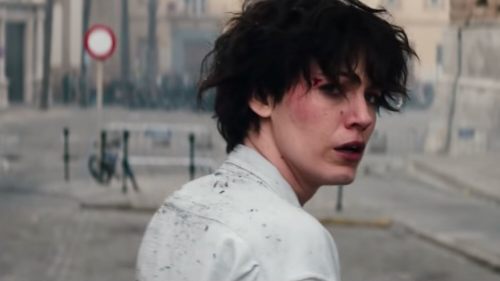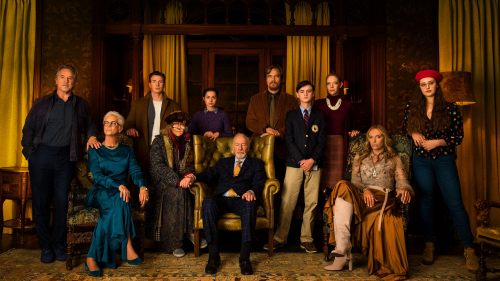Fantasia Fest Review: Mark Duplass Is A Big Old CREEP
Aaron (writer/director Patrick Brice) is a freelance videographer answering a Craigslist ad that takes him to a secluded mountain lodge. There he meets Josef (co-writer Mark Duplass), who tells him he only wants eight hours of Aaron's time. Josef is dying of cancer, and he wants Aaron to film a day in his life so Josef's wife can eventually show it to the son who is growing inside of her. He wants to take Aaron to a supposedly healing, heart-shaped spring deep in the woods, but before that, he takes him to tubby time, getting naked and climbing jovially into the bathtub where he sits, splashing around and playing with an imaginary son before growing solemn and sinking beneath the surface of the water - all within minutes of meeting Aaron. Who the hell is this guy, and just what kind of video does he want for his son?
Josef name-drops the excruciating Michael Keaton movie My Life right away, so we know what sort of film we're getting: a hilarious one. But Creep is also deeply awkward, a film that finds horror in the uncomfortable. Josef is odd, painfully so, far too earnest and unnervingly emotional. Sure, he's got a brain tumor, but does he have to be so goddamn weird about it?
Soon we meet Peach Fuzz, the deeply upsetting wolf mask to which Josef attributes a couple of different, equally disturbing histories. (Well, maybe not equally. One might be worse.) And then Aaron can't find his keys, and Josef's practically forcing whiskey down his throat, and Aaron intercepts a phone call that leads him to suspect Josef's story is not what it seems.
Creep never goes anywhere entirely unpredictable, but it's the manner in which we take this journey that stands out. Largely improvised by Duplass and Brice, the film is often riotously funny, but in a way that escalates the tension rather than relieving it. Nothing can relieve the tension of Creep - it's the kind of film designed to plague you with its eccentricity, never leaving you quite comfortable. The film takes place entirely via the video Aaron is shooting, and it makes found footage feel like a fresh opportunity for scares instead of a tired gimmick. How does it do this? How does Creep take a concept so unsurprising and shock us with it? I honestly don't know, but I know that by the end, I was a believer. Hell, I was a believer five minutes in.
When Creep changes settings, escaping from the confines of that anonymous mountain lodge, it never quite again matches the pressure we feel there. But the film (under ninety minutes) never loses our attention or our discomfort. Duplass gives a nearly untenable performance, in the best possible way. I could barely stand to look at him by the end. And Brice has proven himself a worthy straight man to Duplass' intolerable peculiarity - but more than that, he's proven himself a horror director I will be watching for from here on out.



